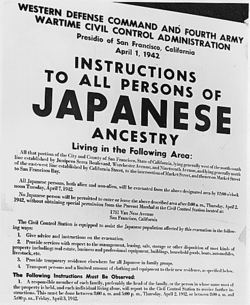Biography
Otsuka was born on May 15, 1962, in Palo Alto, California. Her father worked as an aerospace engineer and her mother worked as a lab technician before she gave birth to Otsuka. [2] Both of her parents were of Japanese descent: her father is an issei, and her mother was a nisei. [3] When she was nine, her family moved to Palos Verdes, California. She has two younger brothers, David and Michael, a professor at the London School of Economics. [4] [2] Her mother died in 2015 from frontotemporal dementia. [5]
After graduating from high school, Otsuka attended Yale University, graduating with a Bachelor of Arts degree in art in 1984. She graduated from Columbia University with a Master of Fine Arts in 1999. [6] [7] Her debut novel, When the Emperor Was Divine, deals with Internment of Japanese Americans during World War II. It was published in 2002 by Alfred A. Knopf. Her second novel, The Buddha in the Attic (2011), is a prequel to When the Emperor Was Divine about Japanese picture brides. The Swimmers (2022) is the third installment in the author's trilogy of books regarding Japanese Americans in the United States.
Otsuka's autoethnographical historical fiction novels deal with Japanese and Japanese American characters and their experiences during their respective historical periods. Although she did not live through World War II, her mother, uncle, and two grandparents did, giving Otsuka a personal perspective on the matter. [8] When the Emperor Was Divine portrays the experience of an unnamed family incarcerated in the Japanese-American internment camp. [9] Otsuka has a background as a painter, and her books have vivid imagery. [10] She is a recipient of the Albatros Literaturpreis. [11]
Otsuka lives in New York City. [12] Her most recent book is The Swimmers (2022). The novel tells the story of three women, unknown to each other, for whom the routine of swimming daily laps helps hold their lives together, until a crack develops in their community pool and disrupts everything they hold dear. [12] [13] This book was based on her own experiences with her mother as she watched her struggle with frontotemporal dementia. Of her mother, Otsuka said, "Everything I write seems to be about her in some way—this is especially true in The Swimmers. Even when I try not to write about her, she somehow surfaces in the work, if only as a ghostly penumbra. All these years later, I’m still trying to figure out who she was." [5]

Personal family history and the relation to characters in When the Emperor Was Divine
Following Japan's Attack on Pearl Harbor on December 7, 1941, President Franklin D. Roosevelt signed Executive Order 9066 calling for the immediate removal of all Japanese and Japanese-Americans on the West Coast of the United States to Japanese-American internment (concentration) camps. Approximately 120,000 persons of Japanese ancestry [14] were forcibly taken to one of 10 Japanese internment camps from 1942 to 1945. While Otsuka's grandfather was arrested by the FBI under suspicion of being "dangerous enemy alien" following the bombing of Pearl Harbor, [15] Otsuka's grandmother, mother, and uncle weren't incarcerated until Executive Order 9066 was signed into law on February 19, 1942. [16] The family was then held in a horse stall at the Tanforan Racetrack until they were subsequently transferred to the Topaz Internment Camp [17] near Delta, Utah. They remained prisoners in the Topaz Internment Camp for the next three years until they were able to return to their pre-war home in Berkeley, CA, on September 9, 1945. [17]
Otsuka reports that while she was growing up, her mother rarely spoke of the family's internment camp years. [16] It was only mentioned in passing references- like when she hung up the phone at the end of a phone call, she would say, "Well, the FBI will be checking on you soon...." [18] Even so, the unnamed family of characters in her novel, When the Emperor Was Divine, reflected Otsuka's own family experience in many direct ways: the father character was arrested immediately after the bombing of Pearl Harbor by the FBI under suspicion of being a dangerous enemy alien, the postcards from the father character were taken from actual postcards sent from her grandfather to his family during his own internment, [18] and her uncle served as a prototype for the son character. [16]